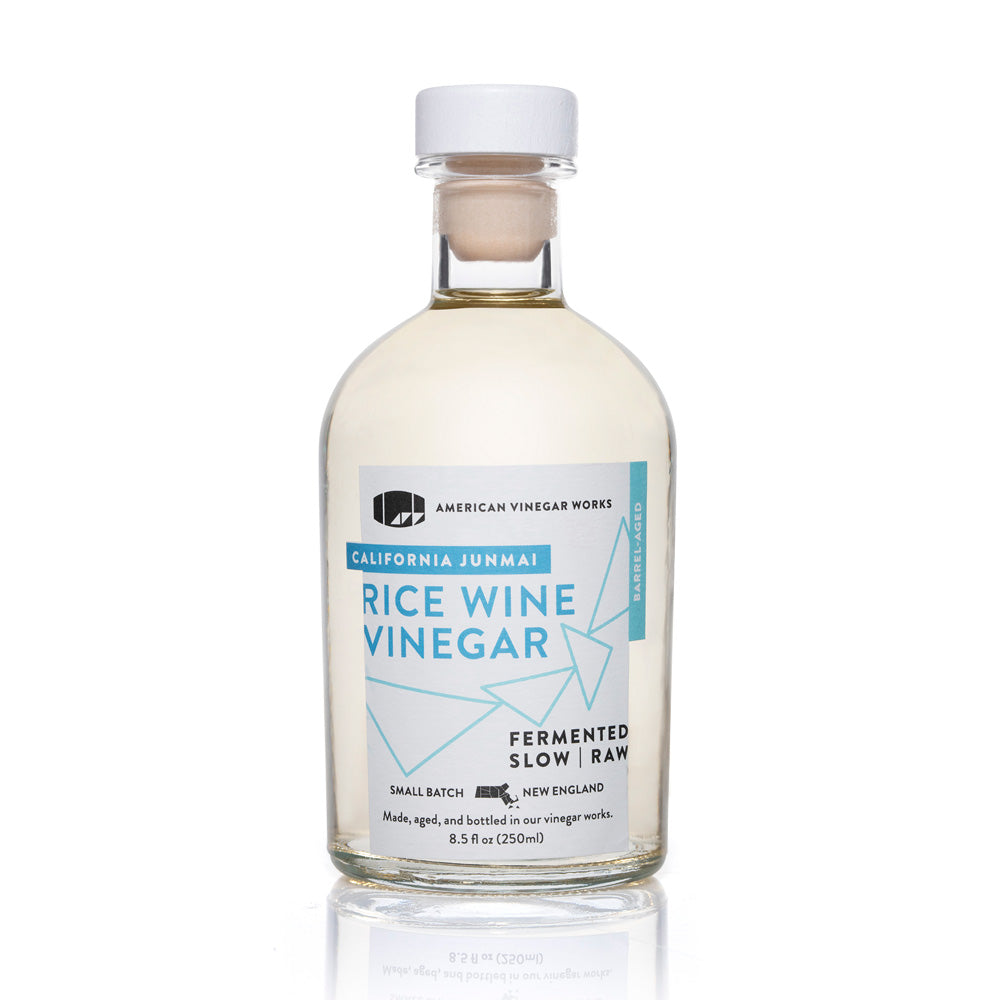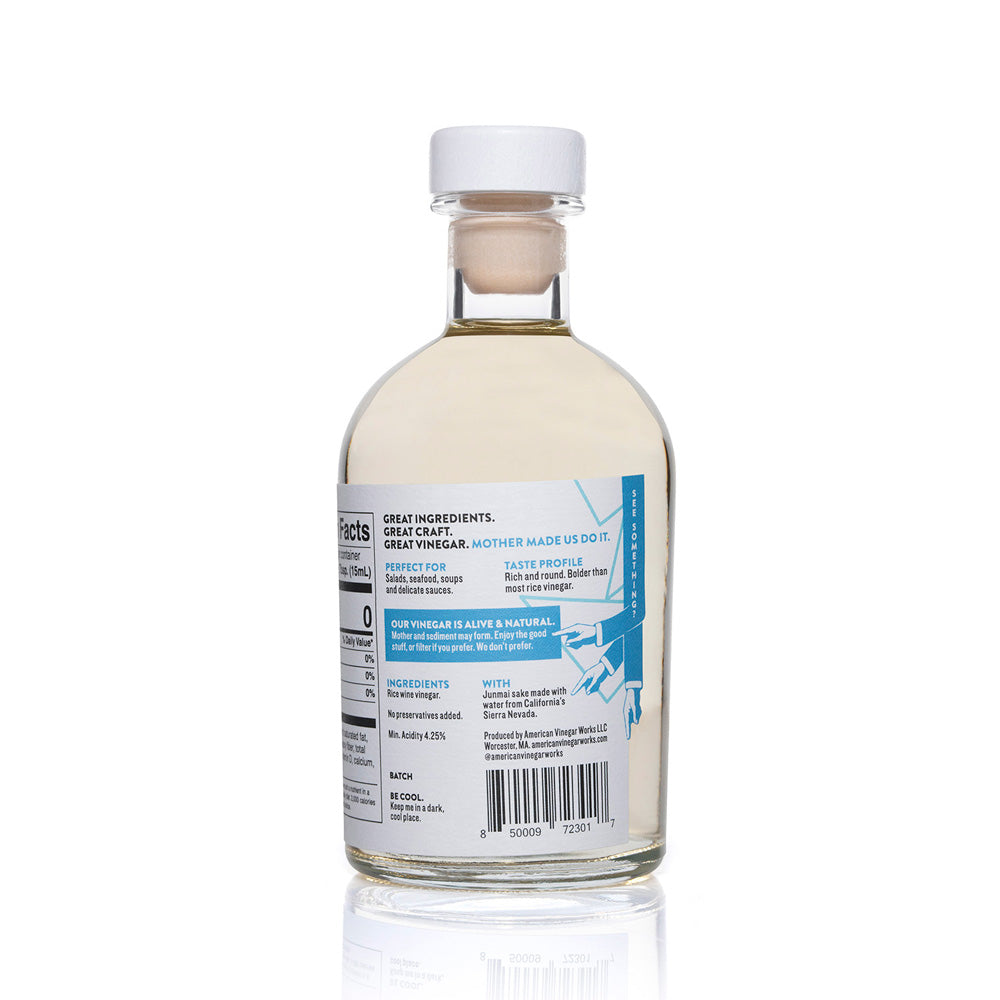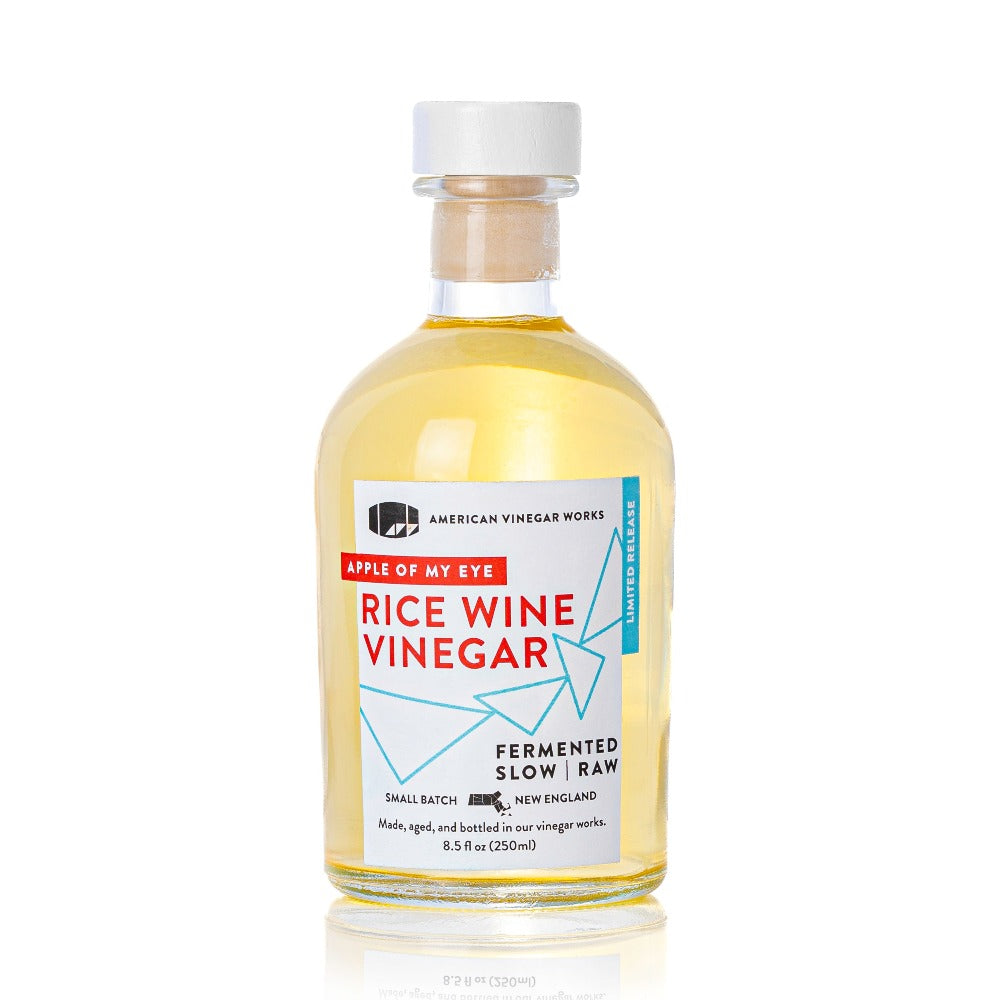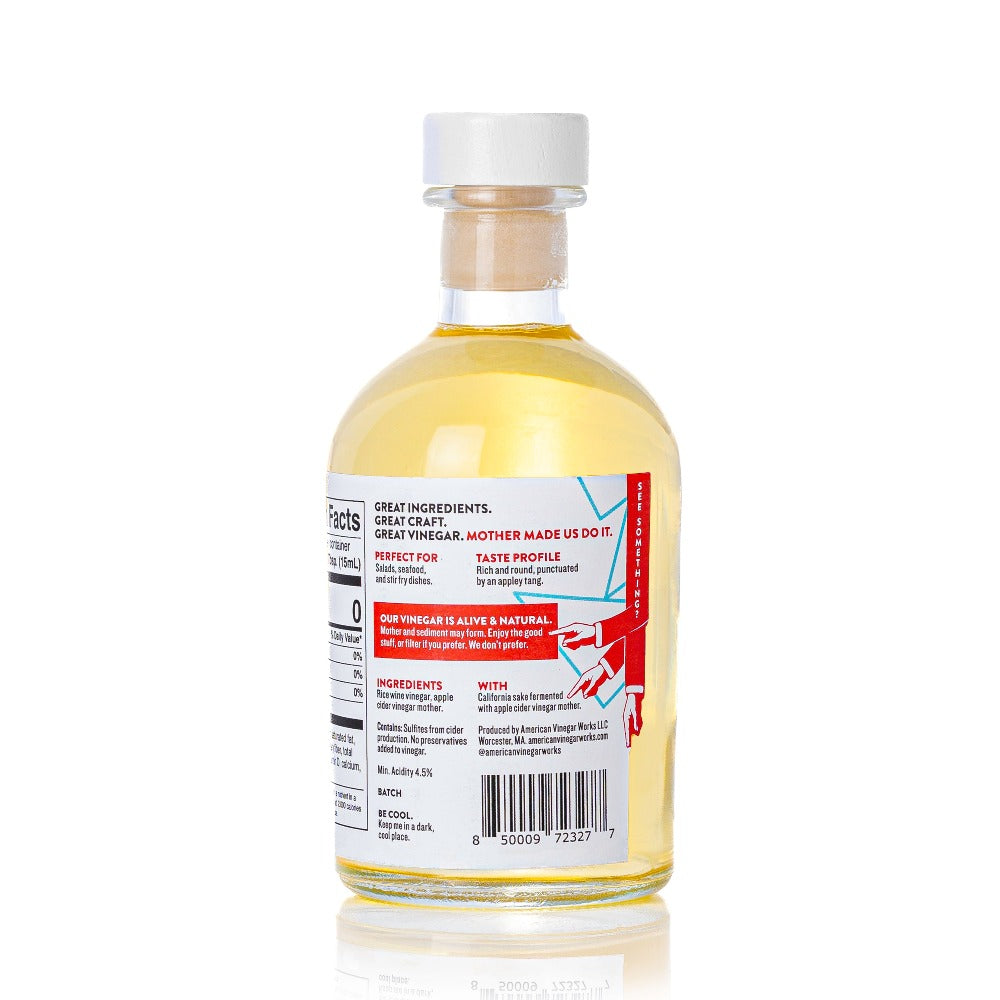We make our rice wine vinegar using Junmai grade sake that is brewed in California using water from the Sierra Nevada. You will find that both of our sake-based vinegars are richer and rounder than commercial varieties. Try our rice wine vinegars for yourself and taste the difference.







